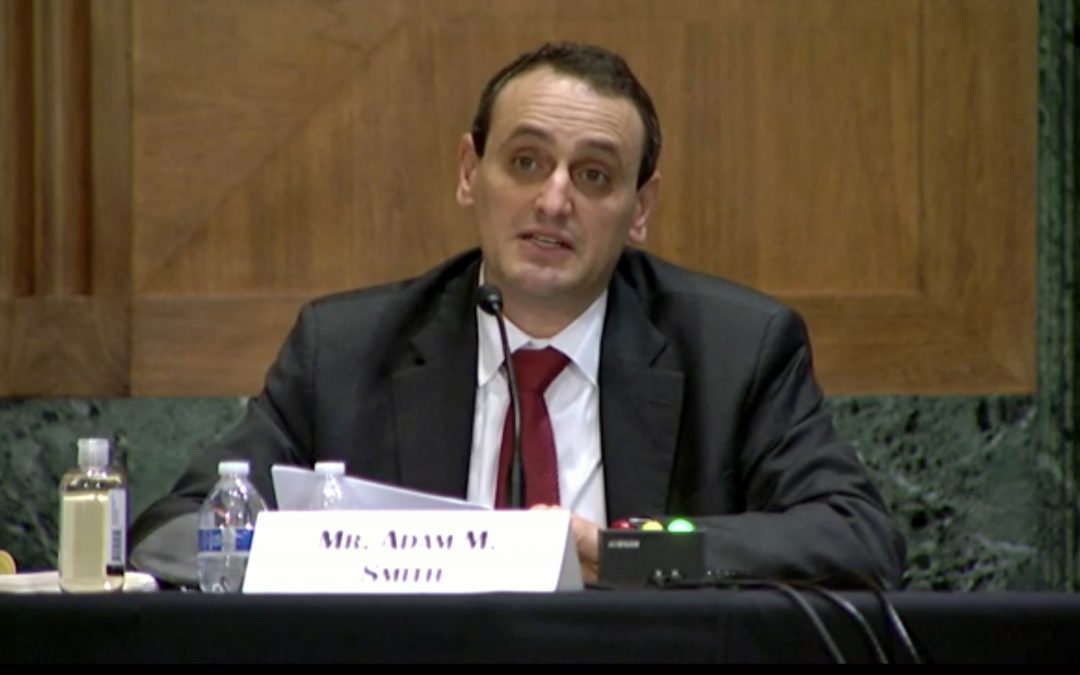WASHINGTON — A former Afghan member of Parliament and policy experts advised lawmakers on Tuesday to prioritize humanitarian aid to Afghanistan’s civilian population while keeping resources out of the hands of Taliban leaders.
“U.S. sanctions policy must continue to work to limit flows of funds and goods to the Taliban and other sanctioned parties,” said Adam Smith, a former director for multilateral affairs at the National Security Council. “It should also work to ensure that tens of millions of Afghani citizens are not victimized twice over — once by being subjected to the brutality of the Taliban and again by being denied access to basic needs.”
The discussion came during a hearing held by the Senate Banking, Housing and Urban Affairs Committee on the national security, humanitarian and economic implications of the Taliban’s takeover in Afghanistan in August.
Senators and witnesses at the hearing grappled with balancing Afghans’ need for food, medicine and other necessities with maintaining sanctions that limit the Taliban’s access to assets parked in the United States, regulating financial transactions and restricting international travel for high-ranking members.
“It is time to have a sanctions policy that doesn’t make it more difficult for the Afghan people to have a chance to rebuild,” said Sen. Elizabeth Warren, adding: “That is our sole responsibility here.”
The sanctions, which have been in place for decades, have complicated the flow of humanitarian assistance to an economically frozen country already grappling with multiple crises, including the COVID-19 pandemic and a severe drought.
To stimulate the flow of aid, the U.S. Treasury Department issued two general licenses on Sept. 24. General License 14 allows the U.S. government and other select organizations to interact with the Taliban to offer humanitarian assistance in Afghanistan, while General License 15 permits transactions needed to send food, medicine and medical devices into the country.
The licenses “suggest a broader restriction” on the Taliban’s sanctions with regard to the Afghanistan government that “implicitly creates a more extensive ban than just on the Taliban or the Afghan government,” Smith said.
The licenses do not reduce or remove restrictions the United States has previously imposed on the Taliban.
“There’s need for additional action now, guidance that sanctions are not intended to impede humanitarian action and that member states must implement these measures consistent with their commitment under international humanitarian law is one step,” said Sue Eckert, a senior associate and lecturer at the Center for Strategic and International Studies and Jackson Institute for Global Affairs. “But there is a need for a humanitarian carve-out to ensure these activities and humanitarian assistance can continue.”
Naheed Farid, a member of Parliament from Afghanistan who fled her home country in August, called for the establishment of humanitarian corridors in Afghanistan to allow local and international NGOs to work in the country without Taliban interference.
“The Taliban regime cannot be trusted,” said Farid, who was targeted by the militants in her home city of Herat before the takeover of Kabul. “No U.S. administration or U.S. allies should recognize the Taliban regime, nor should they normalize relations unless and until the Taliban purge their ranks of known terrorists and deliver a pluralistic political system that provides equality for all Afghans.”
Senior fellow at the Foundation for Defense of Democracies Thomas Joscelyn echoed Farid’s warning about acknowledging the Taliban as the legitimate government of Afghanistan, saying that removing sanctions would “grant the Taliban the political victory it never could have imagined when the war began in October 2001.”
“The Taliban won the war, but this should not be sufficient to recognize it as a legitimate actor on the world stage,” Joscelyn said.

